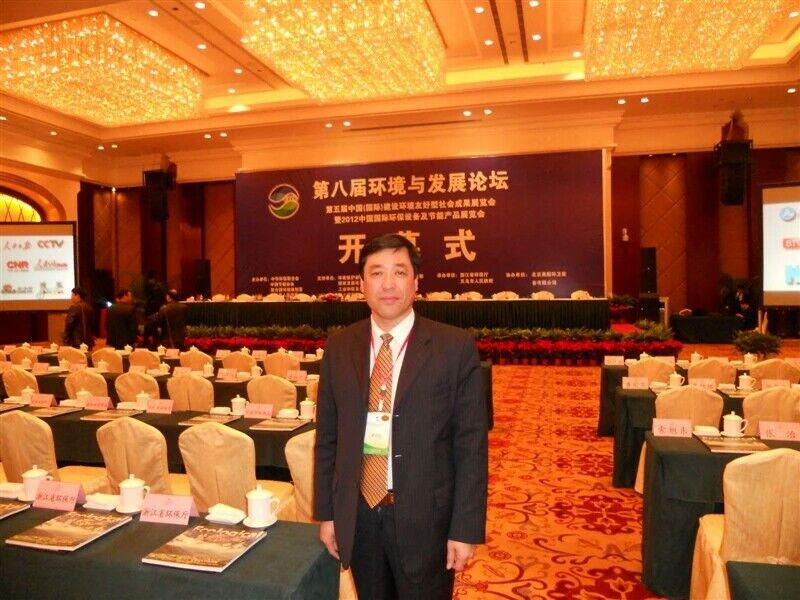Note��This article is for background purposes only and is not intended as legal advice.
��������ע�����ăH�����������������ּ���ṩ������Ҋ�g��ע�����g���IJ�δ�õ�ԭ����ͬ���������g�ăH���W�����о�ʹ��
��������
����Why do people hate to get letters from lawyers�������They carry bad news. They mean serious business. They��re hard to understand. They use strange words. They carry the inherent threat of suit.�˂�?y��u)�ʲôӑ���յ��Ɏ��ā���������������������ǎ������Ϣ������ζ�������ϳ��F�ˇ��صĆ��}������ң��@Щ��������������Щ�y������������������һЩ��Ƨ�Č��I(y��)�g�Z������߀�У����յ��Ɏ��ā���֮������������S֮���������V�A�����{������
����Why do lawyers send such letters����They mean serious business���and they intend to sue.�Ǟ�ʲô�Ɏ���߀Ҫ�l(f��)���@Щ�ż��أ���齻�׳��F�ˆ��}����Ҳ��������������V�A���
����But must they use those ancient��strange words and be so hard to understand���or can lawyers express serious business and imminent suit using words everyone knows��
�����Dz������Ɏ�����һ��Ҫ��һЩ��Ƨ�Źֵ��g�Z�����M������������Q��Ԓ�f���Ɏ��ܲ����ô�Ҷ���Ϥ���~�Z�����������ϵĆ��}�����R���V�A�����
����Whether writing a demand letter to a contract breacher��an advice letter to a client�������or a cover letter to a court clerk�����the letter fails if the person receiving it cannot understand what it says.�䌍��������ǽo�`�s�ߵ���ʽՈ���������o�͑�����Ҋ��������߀�ǽo��Ժ��ӛ�T���f��������ֻҪ�����˲����������f��Щʲô���������@�ӵ��Ɏ����Dz��ϸ�ġ�
����All of these letters have one thing in common��They are not great literature. They will not be read in a hundred years and analyzed for their wit�������charm or flowery words. With any luck they will be read just once by a few people��followed quickly by their intended result�������whether that be compliance�����understanding or agreement.���е��Ɏ�������һ����ͬ�����c����������Ҫ��̫�����ČWɫ�ʣ��������������Ժ�Ҳ�������ٱ���x���������˂�Ҳ�������������������ǻ����������������������������е��A���~�Z���o���Pע������H�ϣ���Փ�@Щ�Ɏ������d������Ĭ�S�������߀�Džf�h����������\��ԒҲֻ�����ٔ��˞����ض���Ŀ�Ķ���xһ�������
����Lawyers are Letter Factories�Ɏ��ǡ��ź����S��
����Lawyers write many��many letters. An average for me might be five letters a day. This includes advice letters���cover letters��demand letters��all sorts of letters. Some days have more�����some have less������but five is a fairly conservative average���I would think. Five letters a day for five days a week for fifty weeks a year is 1��250 letters a year. This is my 25th year in practice������so it is quite conceivable that I have written 31�������250 letters so far.�Ɏ������ܶ�ܶ���ź�������ҁ��f��ƽ��ÿ��Ҫ��5���ź���������Ҋ��������f��������ʽՈ����Լ�������ʽ���ӵ��ź�����������Еr��һ������ö�Щ���Еr��һ���������Щ���������^��������J��ÿ��5��߀��һ�����صĔ��֡�ÿ��5������ÿ��5�죬ÿ��50�ܣ���Ӌ��������ÿ�����1250������������������25��Ĉ�(zh��)�I(y��)��������������������ź��_31250��֮���������
����Why do lawyers write so many letters����A primary reason lies within the ethics of our profession. Florida Bar Rules of Professional Conduct Rule 4-1.4 says��
������A lawyer shall keep a client reasonably informed about the status of a matter and promptly comply with reasonable requests for information.��
������A lawyer shall explain a matter to the extent reasonably necessary to permit the client to make informed decisions regarding the representation.��
�����Ɏ���?y��u)�ʲôҪ���@ô����ź��أ������҂����I(y��)Ҏ(gu��)�����I(y��)�����������������_���_�ݵ��Ɏ��l��֮�I(y��)�О�Ҏ(gu��)�t�е�4-1.4���f����
������һ���Ɏ�����͑����¼��ĬF�ؓ�и����͑��ĺ���Ҫ����o��֪ͨ���x���������������
������һ���Ɏ������m���ķ���֮����͑���������������Ա�͑�����������Q�����������
����While clients can be kept informed and given explanations orally�����lawyers certainly know the value of the printed word over the spoken word��it is not as easily forgotten or misunderstood. Letters also create a record of advice given��which is useful to both the lawyer and the client. That is why letters are the preferred method of keeping clients informed and giving clients explanations.��Ȼ�͑�֪��Ҫ������Щ���^�ϵĈ��ͽ�ጣ����Ɏ��������ו������ֱȿ��^Ԓ�Z���ɿ������������ױ���ӛ���`�⡣�ź��܉淨����Ҋ��ӛ��������@���Ɏ�����͑�����������������������������҂��f�ź��DZ��挦�͑��Ĉ�����͑�������ɵ���ù��ߡ�
����Some Things To Do Before Writing���ź�֮ǰ��Ҫ��������
����Before you start writing the letter it makes sense to do some preliminary background work.�ڄӹP����ź�֮ǰҪע������һЩ���A�ԵĜʂ乤�������
����Find a letter form. Find a similar letter you have sent in the past�����or see the Appendix to this article for sample engagement��cover������demand��contract negotiation�������contract advice�������and fax letters.�����ź��������������������ǰ��ݵ��ź��Ќ�����Ƶķ����������Ҳ���ԅ���һ�´��ĸ�������еķ����������A�s��������f��������ʽՈ�������ͬՄ�Ђ����������ͬ��Ҋ�������溯�ȣ�������
����Review prior letters to this recipient. In a busy world��it is easy to forget. Review prior letters to remind yourself where you are in the work process����what has already been said���and what remains to be said. This will give your letter direction and purpose.����һ����Щ��ǰ�l(f��)�oԓ�����˵��ź����������@����æ�������������ö�����������ӛ�������ǰ���ź������������ڹ����������ߵ�����һ�����������Щʲô�����߀��Ҫ�fЩʲô�������f�������@���������������ź��ķ����Ҫּ�������
����Do not send a letter to another lawyer��s client without that lawyer��s consent. Before sending the letter����find out if the nonlawyer is represented by someone else. Start by asking your client. Florida Bar Rules of Professional Conduct Rule 4-4.2 says��
������In representing a client������a lawyer shall not communicate about the subject of the representation with a person the lawyer knows to be represented by another lawyer in the matter������unless the lawyer has the consent of the other lawyer.��
����δ�����S����Ҫ�l(f��)���o��һ���Ɏ��Ŀ͑������ڰl(f��)��֮ǰ���Ҫ�_�J�������Ƿ��ѽ��д����Ɏ��ˡ�����������@֮ǰ����Æ�һ�����Ŀ͑����������_���_�ݵ��Ɏ��l��֮�I(y��)�О�Ҏ(gu��)�t�ĵ�4-4.2�����@�ӵ�Ҏ(gu��)����
�������ڞ�͑��M�д�������У����һλ�Ɏ�֪���������ѽ�����һλ�Ɏ��ڞ���������������ǵõ�ԓ�����Ɏ���ͬ�����������Ͳ�����ͬԓ�����˽������P����֮�������������
����Outline your thoughts in a checklist. Before turning on your computer or dictating machine���pull out a yellow pad and jot down the main points for your letter. List what you want the letter to say. Write the points in any order��write them as they come into your mind. You can rearrange them when you write the letter. Right now you��re just making a checklist for writing the letter.�г����Ę�˼��V�������ڴ��_��X������Cǰ���ó�һ���Sɫ��С��{����ӛ���ź��Ĵ�V���г��������ź���Ҫ����ʲô������ӛ��@ЩҪ�c�r��Ҫ���]ʲô����뵽ʲô�͌�ʲô�����������������������ź��r���°�������F��������Ҫ���ăH�H�Ǟ��ź��ʂ���V��
����Keep the legal pad close at hand. When you run out of ideas for the checklist����put the pad at the side of your desk. New ideas always spring forth when writing. Jot these down on the pad as you write the letter���they are easily forgotten.�S�r������С��{��������߅����������Ҫ����˼��V��Εr����ҲҪ��С��{������������������ڌ����^�����S�r����ӿ�F����˼·�������Ҫ���rӛ���@Щ�µ�˼·������Բ�ע������������͕������ˡ�
����Simple Stuff That Will Make You Look Dumb If It��s WrongһЩ�e�`��С����(ji��)���������_�����۾�
����Letters begin with boring things like the date and recipient��s name and address������but if any of these are missing or wrong the letter writer will look pretty careless��to say the least. So be careful when starting the letter�����and you can even include some extra things that will make the letter even better than the regular letters the recipient receives.�ź�����׳���Ҫע���r�g������������������סַ�ȷ�����������������@Щ������e�`���DZ���©������f�Ç���һ�c�������X�Õ�������Щ���Ĵ�����������������������һ�_ʼ����ź��r��ҪС��֔�����ע����Щ�e��헣��������X���Ɏ�����һ���ź��_��Ҫ�������
����Date your letter. Date your letter the day you write it����and send it the same day. Undated letters are difficult to reply to. I usually reply to them by saying��������This is in reply to your undated letter that I received in the mail on 24 June 1999.��
����ע�����ڡ����ź���ע�������������������ڮ��հl(f��)���ź���δע�����ڵ��ź��؏�������Щ���y������������@�ӵ��y�}�������ҳ������@�ӌ��ģ���Ɲ��1999��6��24���յ�֮δע�����ں��������������������
����Consider using the international dating convention of day-month-year rather than the U.S. convention of month-day-year. As reported in the 1 June 1999 Wall Street Journal��
������The quirky U.S. style of date-writing is giving way to the day-first standard used by most of the world.����Both the MLA style guide and the Chicago Manual of Style support the day-first format.��You get rid of the comma that way���������says Joseph Gibaldi��director of book acquisition for the MLA in New York.��
������ע�����ڕr���������Ç��Hͨ�õĸ�ʽ����-��-�꣨day-month-year����������������ͨ�õĸ�ʽ����-��-�꣨month-day-year��������������A�����Ո���1999��6��1������������ǘӣ�
���������c�Źֵ������r�g��ʽ����λ������ͨ�õ��������ȵĕr�g��ʽ�����F���Z�ԌW����MLA�����w��֥�Ӹ��փ����w��֧���@�N�������ȵĕr�g��ʽ��������~�s�ݬF���Z�ԌW����MLA���ĈD����ُ������Joseph.GibaldiҲ�f���ゃ��횒�����Щʹ���˶�̖�ĕr�g��ʽ�������������
����If you are sending a fax or email��then type the time next to the date. While letters��cross in the mail��in days���faxes and emails��cross in the wires��in hours and minutes.��������Ԃ��������]������ʽ�l(f��)���ź��������ź���ӡ�����ں;��w�r�g��������y�]�����f����Ҫ���죬�����������s־�Ă��f�tֻ��Ҫ�ׂ�С�r����������
����Remind your client to preserve attorney-client confidentiality. Sometimes clients show your letters to others without realizing they can lose the attorney-client privilege of that communication. Add this phrase at the top of the letter to remind them not to do this��
����CONFIDENTIAL ATTORNEY-CLIENT COMMUNICATION DO NOT COPY OR DISCLOSE TO ANYONE ELSE If the letter is written during or in anticipation of litigation��the following phrase can be used��
����CONFIDENTIAL ATTORNEY-CLIENT COMMUNICATION AND WORK PRODUCT DO NOT COPY OR DISCLOSE TO ANYONE ELSE
�������ѿ͑����c�Ɏ�֮�g�Ľ�����ͨؓ�б����x����������Еr�������͑��յ����Ɏ����ýo��������x��������������֪���������܌����c�Ɏ�֮�g��ͨ�ă�����¶�o�������������������ԓ���ź����ײ�����һЩԒ�����ѿ͑���
�������Ɏ��c�͑�֮�g�Ĝ�ͨ������������Ϣ��δ�����S�������Ï��ƻ���¶�o��������
��������ź��ǰl(f��)�����V�A֮�л����V�A�Ĝʂ��A�����������������@��Ԓ��
�������Ɏ��c�͑�֮�g�Ĝ�ͨ�������Ɏ��Ĺ����ɹ���������Ϣ��δ�����S�����Ï��ƻ���¶�o��������
����Be sure to use the recipient��s correct legal name and address. Your letter may be relied upon for its accuracy����so be accurate. Verification of names can be obtained from the public records�������the phone book���or the webstes. And when it comes to middle initials��never rely on your memory or guess at it because most of the time you��ll be wrong.���������˵ķ������Q��סַ���ֻ���ź��ă��ݜʴ_��������������X�����ǿ�����ه�ġ����������ù����n����������Ԓ�����������W�ȹ��߁��ˌ��@Щ���Q�Ĝʴ_�ԣ��e�������������@Щ���Q�г��F�����g���֣�middle initials��������ǧ�f��Ҫ�{����Ͳy���������ĺͲ��Ė|�����������ɿ������
����Indicate the method of delivery if other than mail. If being faxed������include the fax number and telephone number. If being sent by FedEx�����state whether it is by overnight or second day. If being sent by email���state the email address. This will make it easy for your staff person to send it to the correct place�������and it will document for your file how it was sent.��ʹ�Â��y�]���ͽ��ź�������Ҫ�e�f���ͽ��ķ�ʽ������������Â���l(f��)�ͣ���Ҫע������̖�a���Ԓ̖�a������������������f�ͽ�������Ҫ�f���ͽ��ĕr�g�Ƿ�����^һ��������������������]������ʽ�l(f��)�������Ҫע������]���ĵ�ַ�����������ͬ���ͽ���ij�����c���������ֻ�����ź���ע���ͽ��ķ�ʽ���ɡ�
����Include a fax notice. When sending by fax���include a notice in case it is sent to the wrong number. Here is the notice I use at the top of my letterhead when sending a fax��
����NOTICE��This is privileged and confidential and intended only for the person named below. If you are not that person��then any use����dissemination������distribution or copying of this is strictly prohibited��and you are requested to notify us immediately by calling or faxing us collect at the numbers above. Date Sent ________ Time Sent ________ Number of Pages ________ Person Who Conf��d Receipt _________
��������֪ͨ��������ڰl(f��)����ĕr����������ø�һ������֪ͨ�Է��l(f��)�e��̖�a���@����һ���ҽ������ڂ����ź�̧�^��֪ͨ�ӱ���
����ע�⣺���������l(f��)�ͽo����֮�ռ���������ԓ���������Ќ��Ùಢؓ�б����x�ա���������������֮�ռ��������Ո��Ҫʹ�������ְl(f��)��������l(f��)�����������Ʊ�����������������M��ͨ�^�Ԓ�����֪ͨ�҂�������������̖֮�a��
�����l(f��)������_______�l(f��)�͕r�g________퓔�_______�ض��ռ���_____________
����After sending a fax���call the recipient to confirm receipt and write that person��s name in the space provided. Never rely on the fax machine itself to confirm a fax transmission��fax machines do not yet have the credibility of a human witness.�l(f��)���������Ҫ���Ԓ�o�ռ��˴_�J���ѽ��յ����棬�����п���ĵط�ӛ���ռ��˵����������ǧ�f��Ҫ���ł���C�@ʾ�İl(f��)�ͳɹ�����Ϣ�������������C�K���ǙC�������������������ǻ۵Ŀ��Ŷ�����
����The Corpus of the Litterae�ź���ʽ
����The body of the letter is why you are writing it. You succeed by leaving the reader with full knowledge of why you wrote the letter and what it means. You fail by leaving the reader dumbfound and clueless as to why you sent such a letter. While most letters fall somewhere in between these two extremes�����following these suggestions will keep your letters on the successful end of the scale.�ź������w�Ǖ����ź���Ŀ��֮���������������x�������֪������Ҫ���_����˼��Ŀ�ġ���������ź��x��һ�^�Fˮ�����������֪����Ҫ�fЩʲô��Ԓ������@�ӵ��ź��Dz��ϸ�����������������ź���������ijЩ�ط������@�ɂ��O��������������������h�s���������ź����ϳɹ�֮·��
����Identify your client. It is important to let others know who is your client at the earliest opportunity. This accomplishes a great deal. First������it tells the reader that your client has a lawyer. This makes your client happy because most clients want the world to know they have a lawyer. Second��it tells the reader that you are not the reader��s lawyer. This makes your malpractice carrier happy because it��s one less person who��s going to sue you claiming they thought you were representing them when���in fact��you were not.
����Identifying your client is an ethical concern��as well. Florida Bar Rules of Professional Conduct Rule 4-4.3 says��
������In dealing on behalf of a client with a person who is not represented by counsel������a lawyer shall not state or imply that the lawyer is disinterested.��
����Therefore��the first time you write someone a letter�����the letter should open with the following sentence����I represent _________.��After that������every time you write another letter reconfirm who you represent by referring to your client by name and as��my client.��
�������_��Ϳ͑�֮�g���Pϵ������������˱M����˽�l�����Ŀ͑������@��������Ҫ��Ҳ���������벻����Ч�����������������@�����V�x�����Ŀ͑����Ɏ����䌍�������������Ŀ͑���ϣ���M�������֪�����������Ɏ��ģ������@�������Ŀ͑��е����d���Ժ�����������������@߀�x��֪�������������Ɏ�����������@����������Щ���H�Ϻ���]�д����Pϵ�����J������д����Pϵ�������V�������������@�������Ҳ����Щ��ؓ؟�ε��ͽ��߸е���Щ�p������
�������_��Ϳ͑�֮�g���Pϵ��ĺ���Ҫ�����_���_���Ɏ��l��֮�I(y��)�О�Ҏ(gu��)�t�еĵ�4-4.3��ҲҎ(gu��)����
��������̎���Լ������Ŀ͑���һ���]�д����˵Į�����֮�g���Օr����һ���Ɏ������Q���߰�ʾ�Լ���̎���ǹ����o˽����������
��������������������ź��ĵ�һ�r�g�������һ���֑�ԓ���������Ҵ���____.���Դ��Ժ�ÿ�����ź���������ԓ�ٴ��C�����������Ŀ͑����Q֮�顰�ҵĿ͑��������
����State the purpose of the letter. Why leave the reader guessing������Go ahead and say right up front why you are writing the letter. Here are some opening sentences��
������The purpose of this letter is to _________.��
������This letter is to inform you that _________.��
������My client has instructed me to _________.��
������This is to confirm that _________.��
������This confirms our phone conversation today in which _________.��
��������ź���Ҫּ����ʲôҪ�x���Լ��y�������������ԓֱ���ˮ����f������ʲôҪ���@�����������@����һЩ�˷N���_�������䣺
����������ּ��______.��
����������֪ͨ��_______.��
�������ҵĿ͑�ָʾ��____.��
���������Ĵ_�J___________.��
�����������C���҂��������Ԓ�н����ă��ݞ�_____.��
����If there are any enclosures��list them first. Listing enclosures at the beginning of the letter will make it easier for your staff to assemble them and for the reader to check to be sure all was received. This is much easier than having to read an entire���perhaps lengthy����letter to ascertain what are the enclosures.
����The enclosures should be described with specificity so that there is later no question as to what was enclosed. At a minimum���the title and date of each document should be listed. If the document was recorded������then the recording information should be included. Whether the document is an original or a copy should also be specified. The following is an example��
������Enclosed are the following documents from your closing held on ___/___/1999 in which you purchased the home at _________��St. Petersburg����Florida�����from _________��
����Warranty Deed dated ___/___/1999 and recorded on ___/___/1999 at O.R. Book ____����Page ____������_________����County�����Florida��original��
����Title Insurance Policy issued on ___/___/1999 by _________ on _________ as policy number _________��original��
����HUD-1 Settlement Statement dated ___/___/1999��original����
����������S�Ÿ����������Ҫ�г���������������������Α�ԓ�����ź����ײ�������@�ȿ������Ĺ����ˆT�p�ɵ��ռ��@Щ�������Ҳ�����x�ߴ_�J�@Щ�����Ƿ��ѽ�ȫ���յ���������������@��������x�߾Ͳ���Ҫ���ź���ȫ����ȥ������Щ���S�Ÿ���������e���ź��^�L�r���@������ʡ����������
�������˱��⌢�������P�ڸ����Ġ��h�����@Щ�S�Ÿ������M��Ԕ�����f��������٣��@Щ���������Q�͕r�g��ԓ���г��������ij�����ѽ�����ӛ��n�����Ǵ�nӛ���ϢҲҪ���г��������������������ܸ����ęn������߀�Ǹ�����������ԓ���f����������w����Ո���������@�����ӣ�
���������и�����Դ������1999��__��___�յĽ��ף���ԓ�����������������____ُ̎�I��һ��סլ��ԓסլλ��_____����˵�˹����֣����_���_�ݣ�
�������a�������s������ӆ����1999��__��___�գ���1999��__��___�յ�ӛ��n�ڷ��_���_��___�h�Ĺ����n���е�__����___��ϣ�������
�����a�ౣ�U����������_____��1999��__��___����_______���l(f��)����̖��____��������
����ס���ͳ��аl(f��)չ����1̖���c�������l(f��)����1999��__��___�գ���������
����Outline the letter as separately numbered paragraphs. Each paragraph of the letter should state a separate thought�����comment����point or concept. No paragraph should be longer than four or five short sentences. If the paragraph is longer�����then separate it into subparagraphs. The paragraphs should flow in logical���organized fashion. It is not necessary to write them all at once�������you can write them as you think of them. Try to group related concepts in the same paragraphs or in adjacent paragraphs. See the Appendix for sample letters.��һЩ������Ķ�������L���ź���݆�������ź���ÿ���������ֻ���_һ����������˼�������Ҋ������^�c����ÿ���������Ҳֻ���Ă����傀�̾�M�����������ij�������^�L���t���ֳɎׂ�С�ֶ��������֮�g��ԓ��߉����Зl���ؽM�����������Ȼ������Ҫһ���Ӱ��������������������߅��߅�������������������Ҫ���D��һ��������������Ďׂ������Ќ����P�ĸ�����������������ĵĸ�����Ўׂ��@�ӵ����ӿɹ�������
����Give each paragraph a title and underline that title. Think of this as the headline for a newspaper article. This makes it easy for the reader to scan the letter and choose how to more fully read and digest its contents. This also makes it easier for you later when you see the letter in your file and try to remember why you wrote
(������վ��ʹ�ÈDƬ��������oע����վԭ��(chu��ng)����W���D�d�������������վ���d�����Թ������о���Ŀ���������猦���d�����Ю��h��Ոϵ��վվ�L���������վ������ԭ��(chu��ng)�����֘ӻ���������վ�Ɏ�����������D�d�rՈ�ձ�ע����̎�����ߣ���t�����䷨��؟�Ρ�) |










